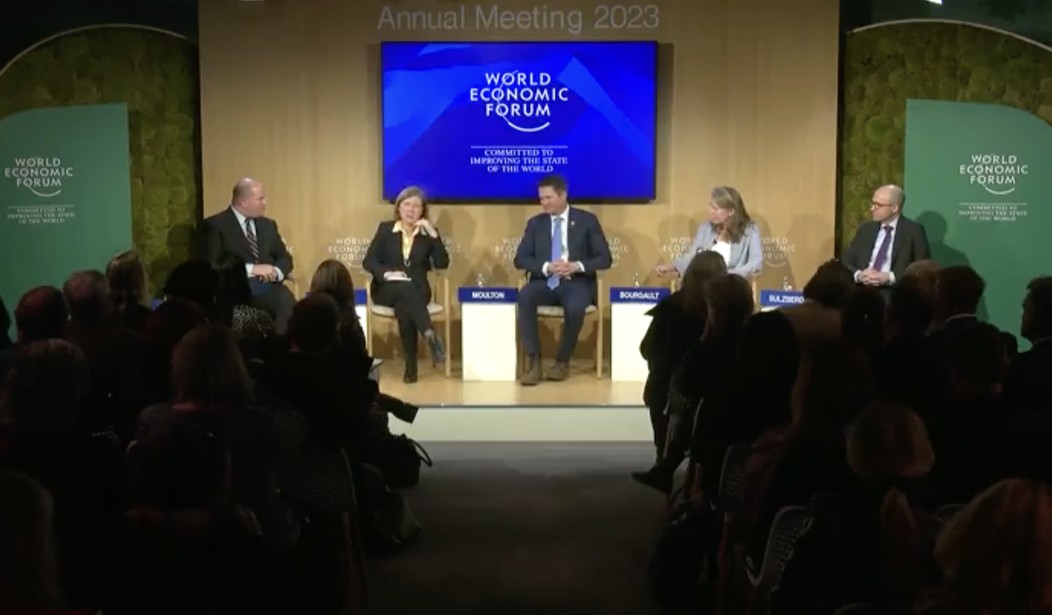Before you bombard me, dear reader, with hate mail about how I’m a traitorous pinko or whatever, allow me the courtesy of making the argument that the term “communist” does not apply to what is going on in the world today.
The ideology of communism must be contextualized within the specific period that it rose to prominence in the late 1800s through the early-to-mid 1900s. “Communism” describes a very specific political ideology offered as a response to the rapid upheaval of society caused by the 1800s Industrial Revolution, in which agrarian economies were transformed overnight (figuratively) into industrial economies.
Communism is a political, social, and economic ideology that advocates the replacement of private ownership and profit-based economies with a classless economic system under which the means of production—buildings, machinery, tools, and labor—are communally owned, with private ownership of property either prohibited or severely limited by the state.…
In 1848, Marx, along with German economist Friedrich Engels, wrote The Communist Manifesto, in which they concluded that the problems of poverty, disease, and shortened lives that afflicted the proletariat—the working class—could be resolved only by replacing capitalism with communism.
There’s a problem with calling the likes of the World Economic Forum and its minions whom Klaus Schwab openly brags about planting in various national governments in the West “communists;” unlike communist ideologues, the WEF does not advocate for “the replacement of private ownership” nor does it seek to eliminate profiteering in the economy per se.
It wants you, the lowly peasant, to “own nothing and be happy.” But in their dystopian vision of the future, the technocratic elite at the top of the socioeconomic pyramid will be free to generate whatever economic profits they like, own whatever they want, and dispense with their human slaves as they see fit.
Related: Polish Conservative Party Rebukes WEF Agenda With Proposed ‘Anti-Bug’ Law
Under communist ideology, the state is simply a necessary, temporary evil that serves as the mechanism to transfer property ownership from the exploitative capitalist class to the oppressed proletariat. In other words, it’s simply a means to an end. In the end, Marx advocated for the total abolition of the state.
This stated communist objective of eliminating the state in the Final Revolution is antithetical to the aims of the World Economic Forum, which aims to establish a permanent technocratic, transhumanist, tightly regimented, stratified global state of the sort envisioned by Aldous Huxley in Brave New World.
As presidential candidate RFK Jr. recently described, we are faced with a corrupt merger of state and corporate power. This power structure could more appropriately be described as “fascist” than “communist,” although it doesn’t include the strong element of nationalism that characterized the Benito Mussolin-era brand of the fascism of yesteryear.
The basic problem with the application of all of these terms — communist, fascist, etc. — to the modern day is that they are anachronisms.
I understand that “communist” is a catch-all term used colloquially to describe an authoritarian state that imposes its will on the people and stifles their economic prospects. But the popular usage of the term is a relic of the now-defunct Cold War, in which competing ideologies — liberal capitalism and communism — competed for influence through the United States and the Soviet Union, respectively.
The bipolar communist vs. capitalist world died when the Berlin Wall fell in 1989. From the ashes, a new world order — namely, a consolidated multinational corporate state bounded together economically by “free trade” agreements like the TPP and NAFTA and politically by the proliferation of transnational, quasi-sovereign governing organizations like the WTO, the UN, and the WHO, just to name a few — was born, and it’s a disservice to truth to describe it as “communist.”
A better term would be, perhaps, global neo-feudalism, in which a sprawling underclass of serfs work the digital plantation while a tiny cabal of technocratic elites exploit what they can from their labor (increasingly obsolete as it is with the rapid development of AI).
Of course, it is granted that the multinational corporate state incorporates (no pun intended) elements of communist ideology into its own: for instance, the abolition of private property (“you will own nothing and be happy”) as well as rejection of nationalism in favor of a globalized, integrated society. However, simply labeling the burgeoning globalist corporate state “communist” as if it is indistinguishable from the 20th-century revolutionary states of the Soviet Union is inaccurate.
Chinese military strategist Sun Tzu advised that “if you know the enemy and know yourself, you need not fear the result of a hundred battles… if you know neither the enemy nor yourself, you will succumb in every battle.” Accordingly, if we continue incorrectly using the term “communist” to describe the enemy, we run the risk of quixotically tilting at the “communist” windmill while its true nature remains obscure.

